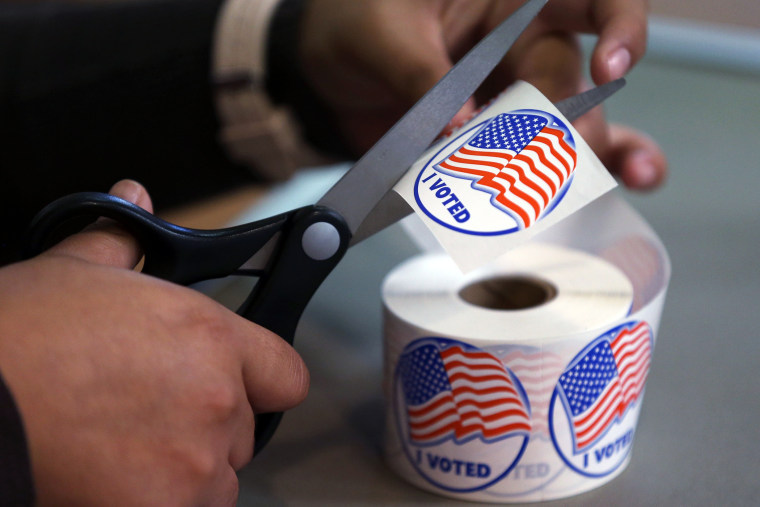The Republican takeover of Congress is probably the most notable development of the 2014 elections, but it's GOP gains in state capitols that will have just as significant an impact on the country. In Nevada, for example, Republicans will now control the entirety of state government.
I
joked the other day that voters in GOP-dominated states can expect to see new voting restrictions soon. Zach Roth
reported yesterday that this wasn't really a joke after all.
GOP state lawmakers in Nevada are readying ID bills for early next year, Secretary of State-Elect Barbara Cegavske told msnbc in an interview. Cegavske said she knew of two separate bills that might end up being merged together. [...] Last week, Republicans took full control of state government for the first time since 1929, meaning a voter ID bill would likely have a strong chance of passing. Governor Brian Sandoval has said in the past he supports voter ID.
State Republicans will have to hurry -- Nevada will be a key 2016 battleground, both at the presidential level and with Sen. Harry Reid's (D-Nev.) re-election bid looming. If GOP policymakers are going to impose new restrictions, they'll no doubt want to have those voting barriers in place before the next Election Day.
It's obviously too early in the process to scrutinize the voter-ID plans in detail -- the proposals are still taking shape -- but msnbc's Roth asked Secretary of State-Elect Barbara Cegavske whether she could point to any real-life instances of voter fraud that a voter-ID law might have prevented.
"I think the biggest concern that most people have is the absentee ballots," Cegavske replied.
Those who vote by absentee ballot do not have to show identification, suggesting the Republican plan is intended not only to address a problem that doesn't exist, but also the proposed solution has very little to do with the perceived problem.
As for the larger phenomenon, this is also a good time to consider the impact of GOP voter-suppression efforts on the 2014 election results.
To be sure, if Democrats start looking for excuses to explain their 2014 losses, they're making a mistake. The party lost up and down the ballot, in different parts of the country, in a variety of different kinds of races. Anyone saying, "Democrats nationwide would have won were it not for voter-ID laws" is simply mistaken.
That said, it's also a mistake to assume Republican-imposed barriers between voters and the ballot box were irrelevant. Catherine Rampell had a
good piece on this the other day:
Voter suppression efforts may have changed the outcomes of some of the closest races last week. And if the Supreme Court lets these laws stand, they will continue to distort election results going forward.
Voters in fourteen states faced new voting restrictions at the polls for first time in 2014 -- in the first election in nearly fifty years without the full protections of the Voting Rights Act. The number of voters impacted by the new restrictions exceeded the margin of victory in close races for senate and governor in North Carolina, Kansas, Virginia and Florida, according to the Brennan Center for Justice.
And now, in the wake of significant Republican gains in state legislatures nationwide, it's quite likely the "war on voting" will get worse.
